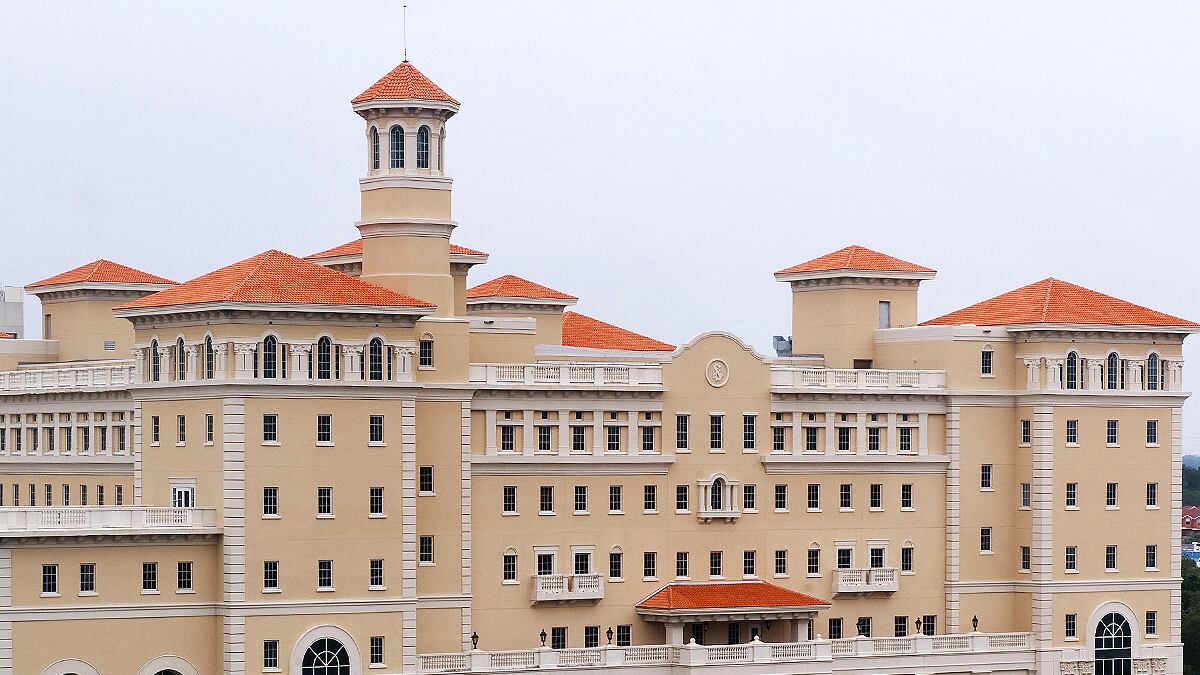On New Year's Day, the Church of Scientology, no stranger to scandal, was treated to yet another dose, this time from a former church official named Debbie Cook.
In an email Cook sent to an astonishing 12,000 people—arguably the most dedicated core of the group—she accused Scientology's leadership of hoarding more than $1 billion in donations; spending lavishly on new churches; punishing former executives with draconian measures; and overselling Scientology books and services to members already stretched by high-pressure sales tactics.
What was stunning about Cook's email wasn't what she said—in researching and writing my investigative history of the church, Inside Scientology, I heard all of these stories and more, and the blogosphere has been buzzing with these reports for more than a year. What was shocking was that Cook, of all people, said it. Allegations of mismanagement and reports of physical, emotional, and financial abuse have been the bread and butter of church critics. Cook, though, is not a "critic" of the church; to the contrary, she was a devoted Scientologist who, for years, has been one of Scientology's truest believers and standard bearers.

Cook spent much of her career heading Scientology's Flag Land Base, which is a cluster of organizations in Clearwater, Florida, that comprise what church members regard as their Mecca. Flag, as it's called, offers the most advanced Scientology courses on land and access to its elite counselors, known as auditors. (The very highest level of Scientology training is offered on Freewinds, the church's highly secure cruise ship that spends most of the year sailing the Caribbean.) Members who opt to seek counseling or other services at Flag pay far more than at any other organization, and it had been Cook's job to see that the operation ran smoothly. It was also Cook's job, as an elite member of the Sea Organization, Scientology's management body, to protect the church, something she did extremely well.
Most memorably, Cook presided over Flag during the 1990s, when the church was rocked by allegations of criminal negligence in the 1995 death of Lisa McPherson, a member who suffered a nervous breakdown in Clearwater and later died while in the church's care. McPherson died of a pulmonary embolism, though a coroner originally cited prolonged dehydration and bedrest as the cause. Cook, who later admitted she'd been "kind of freaked out" by McPherson's death, was one of many senior church officials who spent years afterward trying to shield the church from scrutiny. So much was this the case that in 2000, when another member suffered similar emotional problems at Flag, the church, under Cook's leadership, told him to go home. The member, Greg Bashaw, a Chicago advertising executive, later wrote to Cook claiming that he had suffered a breakdown at Flag as a result of his counseling, and felt abandoned by the organization. Two months later, Bashaw committed suicide.
These stories may seem peripheral, yet they speak to a far larger theme within Scientology, which demands that its members, and particularly its officials, protect the church at any cost. Cook was an exemplary soldier in this cause. This is why her email is shocking for Scientology-watchers, and threatening for the Church of Scientology itself.
Scientology's response to Cook's allegations has been to write her off as yet one more “disgruntled defector” who was never the insider she claims, according to spokeswoman Karin Pouw. This, Scientology's standard response, is part of an overall policy to discredit critics, known as “dead agenting.” This same policy has been applied to reporters for decades. Coupled with an even harsher policy of harassment, known as Fair Game, it has dissuaded many from investigating the church.
In the past few years, a tremendous amount of previously unknown information about Scientology has been made public, thanks to the bravery of former church officials who have posted their stories online, as well as to the doggedness of journalist colleagues like Tom Tobin and Joe Childs at the Tampa Bay Times, Tony Ortega at The Village Voice, and Lawrence Wright at The New Yorker. My investigations into the church began with a 2006 article that I wrote for Rolling Stone, and culminated with my book last year.
Given how much is out there about Scientology, its most recent denigration of Cook, like its denigration of those who have come before her, rings hollow. And so does any defense of policies that have been exposed as bankrupt and in need of change.





